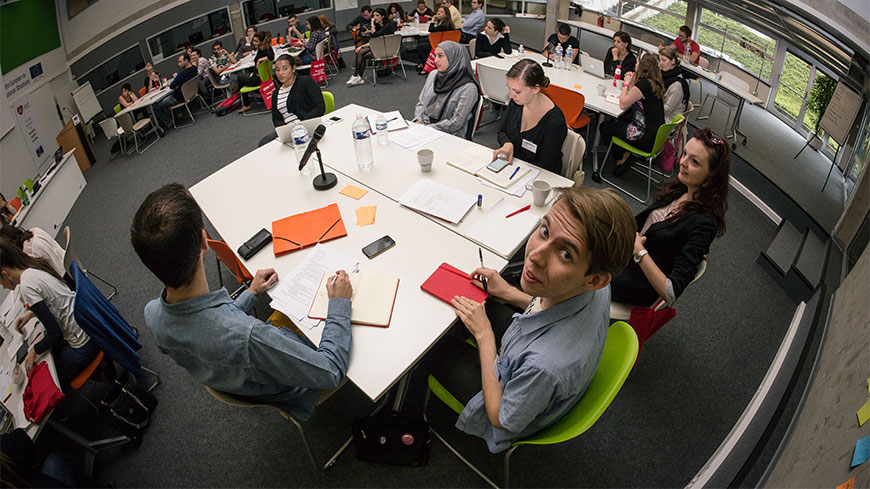Young people are a key resource for building a social and just Europe, and providing them with structured support is an important investment Europe has to make for its present and future.
This is the underlying idea of the new Recommendation to the Council of Europe member states on youth work, adopted by the Committee of Ministers on 31 May 2017.
“The sustainability of European identity and the Council of Europe’s core values – human rights, rule of law and democracy – relies on the creativity, competences, social commitment and contribution of young people, and on their confidence in the future,” the Committee of Ministers said.
Challenges of transition from childhood to adulthood and autonomy, as well as the decline in opportunities for young people as a result of increasing unemployment, poverty, discrimination and social exclusion, put European youngsters into an uneasy situation. “Societies are at high risk of undermining stability and social cohesion if they allow the current difficult circumstances to create a ‘lost generation’ of disillusioned and disengaged young people,” the Committee of Ministers warns.
Provision of quality youth work is vital in this endeavour, as it develops critical thinking, increases the sense of belonging, and strengthens young people’s capacity to resist negative influences and behaviour.
Among the recommendations for advancing youth work are: providing sufficient resources to this end, particularly at the local level; and further supporting the exchange of good practices and promoting equal access to youth work.
It is also recommended that a competence-based framework for the education and training of paid and volunteer youth workers be established. The framework would encompass a set of core competences and skills that should be expected from youth workers, would inform their training, and receive appropriate certification and recognition.


